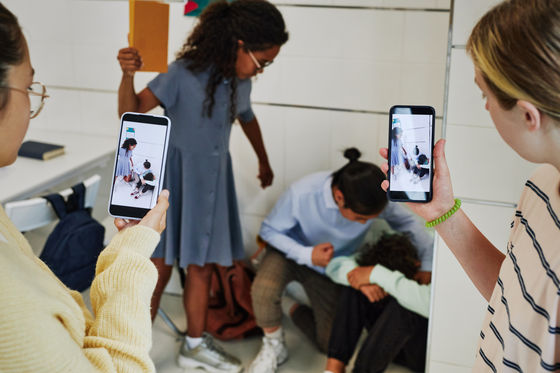Instagram, YouTube and TikTok lose lawsuit against schools for 'addicting young people' and face more than 150 claims for damages

In a lawsuit filed by school districts in 19 states in the United States against four major social media companies, alleging that social media such as Instagram and TikTok intentionally made young people addicted to social media, thereby damaging the mental and physical health of adolescents, the court ruled in partial favor of the plaintiffs. As a result, it has been reported that social media companies may be sued for damages in a total of more than 150 lawsuits.
Meta, Google, TikTok Must Face School Districts' Suits Over Addiction Claims - Bloomberg
https://www.bloomberg.com/news/articles/2024-10-24/social-media-giants-must-face-school-districts-addiction-claims
Meta, Google, TikTok, Snap fail to stop lawsuits claiming their apps are addictive and harmful | Mashable
https://mashable.com/article/meta-google-tiktok-social-media-addiction-lawsuit
School Districts Notch a Win in Tech Addiction Case Against Top Platforms | PCMag
https://www.pcmag.com/news/school-districts-notch-a-win-in-tech-addiction-case-against-top-platforms
This large-scale class action lawsuit arose when the Multidistrict Litigation Judicial Panel consolidated individual lawsuits filed by multiple educational authorities against major social media companies in October 2022. As a result, school districts in 19 states, including California, have begun lawsuits against four companies, Meta (Facebook and Instagram), Google (YouTube), ByteDance (TikTok), and Snap (Snapchat), seeking responsibility for the various negative effects that social media has on young people.
In the lawsuit, the school argued that social media companies failed to properly implement features like parental controls and session limits, and instead used infinite scrolling and targeting algorithms to make children addicted to social media, resulting in a variety of harms to children's physical and mental health, from sleep deprivation to serious mental health problems.

Then, on October 24, 2024, Judge Yvonne Gonzalez Rogers of the U.S. District Court for the Northern District of California issued a ruling denying the companies' motion to dismiss the case, but narrowing the scope of the schools' claims that could be heard.
The ruling first stated that claims about certain features, such as the algorithms used to display content, could be dismissed under
However, Judge Rogers acknowledged that social media companies knowingly encouraged compulsive use of their services, which created a significant burden for school districts to address children's mental health issues, and noted that the companies cannot avoid being held liable.
'While the defendants argue that the school districts' and local governments' alleged damages are too remote or too minor to warrant legal remedies, the Court disagrees in most respects. The plaintiffs' school districts' claims are well within the bounds of state negligence laws,' Judge Rogers wrote in his decision (PDF).

The schools' lead attorneys, Lexie Hazam and Previn Warren, welcomed the ruling, calling it a 'victory for the schools, teachers and administrators on the front lines of the youth mental health crisis.'
'Students are suffering because of the addictive design of Instagram, Snapchat, TikTok and YouTube. Schools are suffering too, and with limited budgets, the added responsibility that social media places on schools to support at-risk students is a departure from their educational mission,' the lawyers said in a statement.
Social media companies have responded to the ruling, with Google spokesman Jose Castaneda saying, 'We work with young people, as well as mental health and parenting experts, to build products and policies that provide age-appropriate experiences for young people and strong controls for parents.'
According to foreign media outlet Bloomberg, this ruling means that social media companies may face more than 150 additional lawsuits.
Related Posts:
in Education, Web Service, Posted by log1l_ks







